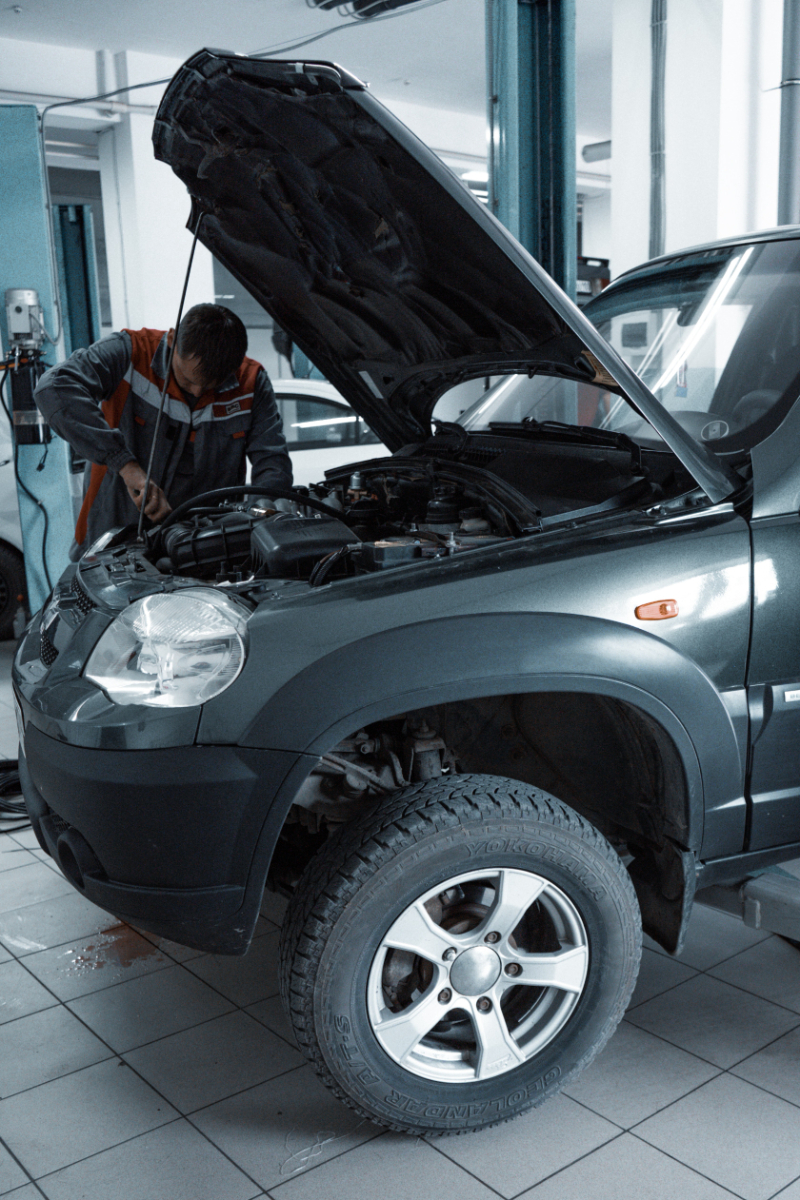Are you considering a car service? In this article, we ask: How Often Does A Car Need Servicing. Find out when your car is due to be serviced next.
What is a car service?
Car servicing is a crucial routine check-up of your vehicle's health, with fully qualified technicians checking for wear and tear of vital parts of the motor.
The brakes, steering, filters, oil and engine belt are among the most important aspects that are checked during a car service.
A car regularly serviced will run smoother and more efficiently, ensuring all parts are healthy and in working order. Getting your car serviced can also help you save money in the long run.
Why do I need a car service?
Regular servicing of your car can help prevent potential problems from arising and ensure all parts are working properly. Over time, as you drive more often, dirt and dust will enter the engine and wear down the efficiency of the overall motor.
A car service cost is much cheaper than paying for the expensive damages further down the line. When you service your car, it's commonplace for the engine oil and filters to be changed, which will help keep your car in good condition.
It's also worth bearing in mind that your vehicle may be worth more after you have given it regular servicing. If you are considering selling your car soon, you would be wise to conduct a service before exchanging money. Ensuring all is running smoothly is attractive to a potential buyer.
How often should I service my car?
You may have had a few services before, but how often should you service your vehicle? Most manufacturers recommend you service your car every 12 months or 12,000 miles, whichever comes first.
An annual service, depending on how far you drive each day, is sufficient to keep your car running.
Of course, if you notice more problems arise before your service is due, you should take your car to a garage for professional treatment.
This timeframe is recommended for most cars and will suit your lifestyle. Motorbike owners, on the other hand, are advised by manufacturers to get them serviced every 6 months or 6,000 miles.
If you are unsure when the last service was you can check the owner's manual, and the mechanic should note down the manufacturer's service history.
When a mechanic gives you an interim service announcement, you should get this done 6 months after your previous one instead of 12.
If you do not get the service carried out on time during the warranty period, your manufacturer can void the warranty.
Every 12,000 miles is sufficient for most people unless your job requires long periods of driving.

What are interim, major and full and services?
Annual servicing isn't enough in some cases, and different service intervals and types have been established to determine the amount of work required on your car.
The service type you require will differ from driver to driver. Your service book will have a series of stamps outlining where and when the previous services took place.
Interim service
An interim service typically refers to draining and refilling your engine oil and removing gunk from the oil filter. Mechanics will typically do this during all services, but unless you choose to pay for a full service, you will only get the basics.
Depending on your car's service schedule and driving style, you could have to do this more often than other drivers. If you're ever unsure, your full-service history should be noted in your owner's manual.
Major service
A major service is the next level up from an interim, involving more work and is typically more expensive. The mechanics will do the same oil change and filter change as an interim, but they will also change the air and fuel filters.
Taking your car to your local garage for a major service, on top of regular maintenance, can make it feel like a new car. While this is not a legal requirement, you have a responsibility to keep your car running safely.
Full service
Car manufacturers recommend a full service annually, which involves more repairs and inspections than other levels. Petrol and diesel cars will have their spark plugs changed, gearbox and brake fluid replaced, and any power steering fluids inspected.
When you get your vehicle serviced, the extent and repairs you need will depend on the age of your car. Used cars will require more work than modern cars.
What's included in a car service?
If you are attending your first manufacturer service, regardless of the level of the service you're paying for, you can expect the mechanics to perform checks on the following:
Always check your car manual if you don't know when your last service was or what it contained.
- Tyres repairs and replacements
- Inspection of bodywork for damage
- Suspension and steering checks
- Brakes
- Check engine oil and oil filter change
- Battery inspection
- Check fluid levels and coolant levels
- Lights
- Exhausts
What's the difference between an MOT and a service?
Car MOTs and servicing seem very similar, and they are. Many car owners will organise their MOT and service simultaneously every 12 months, meaning they get all aspects of their car checked at once.
The biggest difference between an MOT and car servicing is that an MOT is a legal requirement, and you cannot drive on the roads legally without one.
If your vehicle has failed its MOT or is without one, you can receive a police caution or fines up to £2500.
This is a technical safety inspection that should be done annually, with you displaying proof within your car.
An MOT test checks the vehicle is safe and roadworthy while service goes into more depth, identifying potential issues before they arise.
Your manufacturer warranty may outline you must get more services, but they also help keep the car in good running condition.
While one is a legal requirement, it's advised to get both completed at the same time. For your next service, consider booking it in conjunction with your MOT.

How much does a car service cost?
There are several factors affecting the cost of a car service, with the mechanic's labour being the most significant contributor. The age and condition of your vehicle will also affect the overall cost. The average family hatchback, for example, could fall between £100 and £200 before any repairs have been made
This will vary between electric and hybrid vehicles as components can become more expensive, and the same for luxury and sports cars. You may believe that older cars are more prone to problems, but new cars require as much care and service. Some leasing agents may require more frequent servicing to protect the vehicle and maintain its value.
Ask your manufacturer or check your vehicle handbook for more details. For electric or hybrid cars, they should be serviced as frequently as combustion-engined vehicles, as the suspension, steering, and brakes will require the same care.
Servicing costs can be lower than petrol or diesel cars. Depending on what service you choose, the time it takes to complete can vary. An interim, for example, can take a minimum of 1.5 hours, while a full service can take anywhere between 1.5 hours and 3 hours.
As a full service is the check of the whole car, you should account for additional repairs to arise and, depending on how often you care for your motor; this can take longer.
If you need replacement tyres, brake pads or something else, the mechanics may need to outsource some parts. If you would like a service booked, find your nearest servicing centre and ensure you have your registration number and driving information to hand.
Are you looking for an Audi and VW specialist in London? Our mobile mechanics are available throughout Chingford, Harlow and East London.
